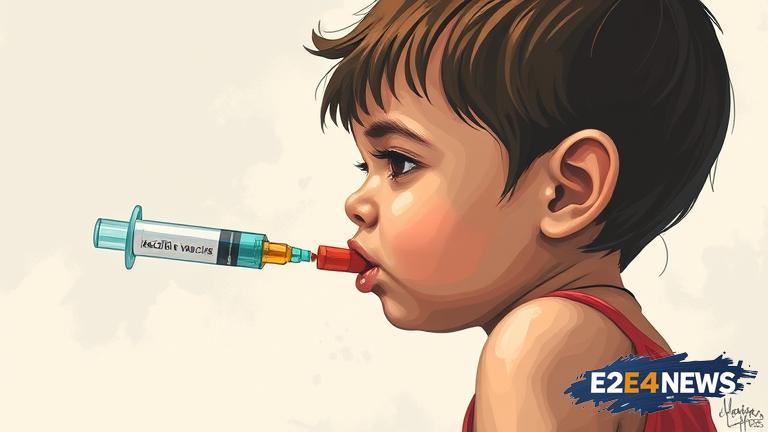According to recent estimates from the United Nations, a staggering 14 million children worldwide did not receive a single vaccine in 2024. This alarming statistic highlights a significant setback in global efforts to immunize children against deadly diseases. The UN report attributes this decline to various factors, including the COVID-19 pandemic, conflict, and lack of access to healthcare services. The pandemic has disrupted vaccine supply chains, causing shortages and delays in vaccine distribution. Additionally, conflicts in countries such as Ukraine, Yemen, and Syria have led to the destruction of healthcare infrastructure, making it difficult for children to access vaccination services. The report also notes that many countries are struggling to maintain their immunization programs due to funding constraints and lack of trained healthcare workers. The consequences of this vaccine crisis are far-reaching, with millions of children at risk of contracting preventable diseases such as measles, polio, and diphtheria. The UN is calling for urgent action to address this crisis, including increased funding for immunization programs and improved access to healthcare services. The organization is also working with governments and healthcare providers to strengthen vaccine supply chains and improve the delivery of vaccination services. Furthermore, the UN is emphasizing the importance of community engagement and awareness-raising efforts to promote the importance of vaccination. The report highlights the need for a coordinated global response to address the vaccine crisis, including the development of new vaccines and the improvement of existing ones. The UN is also working with international partners to support countries in their efforts to strengthen their immunization programs. In addition, the organization is providing technical assistance and funding to help countries overcome the challenges posed by the pandemic and conflict. The vaccine crisis has significant implications for global health security, with the potential for outbreaks of preventable diseases to spread rapidly across borders. The UN is urging governments, healthcare providers, and communities to work together to address this crisis and ensure that all children have access to life-saving vaccines. The report concludes by emphasizing the need for sustained efforts to improve immunization coverage and protect children against preventable diseases. The UN estimates that it will take a concerted effort from all stakeholders to reverse the decline in vaccination rates and ensure that all children are protected against deadly diseases. The situation is particularly dire in countries with weak healthcare systems, where the lack of access to vaccination services is exacerbating the crisis. The UN is committed to supporting these countries in their efforts to strengthen their immunization programs and improve access to healthcare services.
